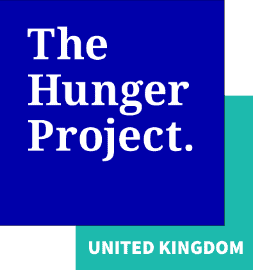07 January, 2012
In 2006, The Hunger Project (THP) launched one of our most ambitious programmes to date: our Scale-Up Initiative in Ghana. The goal: to implement our Epicentre Strategy in Africa on a large enough scale so that it could be proven as a successful, cost-effective and replicable model that could be expanded and adopted by governments in their national development plans.
 The project began in Ghana in partnership with the Robertson Foundation, who provided a $5 million grant that was combined with another $4 million in matching funds from other THP investors, to mobilise 36 epicentre communities in the Eastern Region of Ghana.
The project began in Ghana in partnership with the Robertson Foundation, who provided a $5 million grant that was combined with another $4 million in matching funds from other THP investors, to mobilise 36 epicentre communities in the Eastern Region of Ghana.
All 36 epicentres have now been constructed in Ghana and significant progress is being made on all fronts within the epicentre communities in terms of the provision of health care, food production, and access to microfinance services as well as increased capacity as a result of agricultural, health, literacy, training and more!
For example:
- The epicentres’ health clinics are receiving and treating more than 20,000 people per year in the Eastern Region. Patients are treated for diseases like malaria and dysentery as well as other illnesses and injuries.
- In addition to these services, the health care clinics are providing urgently needed preventive services such as child immunisations and maternal health care. Since 2009, more than 1,500 women per year are now receiving antenatal services.
- To date, more than 17,000 community farmers have been trained in sustainable agriculture methods through THP’s programmes in food security. Farmers learn skills to improve their yields, including; soils management, row planting, use of fertilisers, etc.
- Food Production: Farmers’ yields and income from crop sales have increased and production costs have decreased during the last season because of improved agricultural methods such as micro-dosing and access to low cost seeds, fertilisers and pesticides. A preliminary report from an impact survey conducted by the Monitoring and Evaluation officer in Ghana shows that many households are using the additional food production for family consumption – contributing to improved household food security.
| 2009 | 2010 | % Change | |
| Number of Community Farms | 152 | 233 | +53.2% |
| Average Cost of Production* | 3,904 | 2,007 | -48.6% |
| Average Net Income per Farm | 324 | 346 | +6.8% |
| Average yield per acre (100 kilo bag)* | 4.81 | 5.05 | +5% |
* Staple crops are maize, cassava and cocoa
- These epicentres have mobilised nearly $60,000 in savings from over 6,300 community members. The average savings balance rose from $7 to 10, a resounding 43 percent growth in savings. Such savings are then used by women to help their families or develop their own businesses.
- THP’s Monitoring & Evaluation has grown in data collection and reporting. Currently THP measures project activities and outputs (i.e. number of workshop participants, people served at the health clinics, kilos stored in the food bank, etc.). With the help of experienced consultants and feedback from THP Programme Country staff, a new framework for measuring outcomes and impact is being piloted in Ghana and Malawi. It will be expanded by the end of the year in all THP African Programme Countries.
How Are We Doing?
A long-term longitudinal study of the impact of our scale-up program in Ghana has been commissioned by the Robertson Foundation and is being undertaken by a team of academics from Yale University and the University of Ghana through Innovations for Poverty Action (IPA). IPA is partnering with THP to conduct an independent, third-party evaluation of the long term-impact of the Epicentre Strategy on health, nutrition, income, gender roles, social cohesion and education. At the end of 2008, baseline household surveys in both THP-mobilised areas and randomly selected comparison areas were completed and a follow-up survey will be completed in 2014. Read more.
What’s Next?
- The Robertson Foundation has approved a new grant to The Hunger Project to provide three additional years of funding to support the 36 epicentres in the Eastern Region of Ghana on their path to self-reliance. This new grant of up to $1.8 million is a challenge match. You will hear more about this in the year ahead.
- THP has hired a Partnership Building and Resource Mobilisation Officer in Ghana, who will be spearheading a new advocacy campaign to gain government recognition and support, as well as increased local financial resources.
- We will also continue our conversations with the Government of Ghana following our President and CEO, Mary Ellen McNish’s May 2011 meeting with President Atta Mills.
Watch a video about how our Epicentre Strategy works.
Monthly Giving is vital to our work, set up a monthly Direct Debit today!
